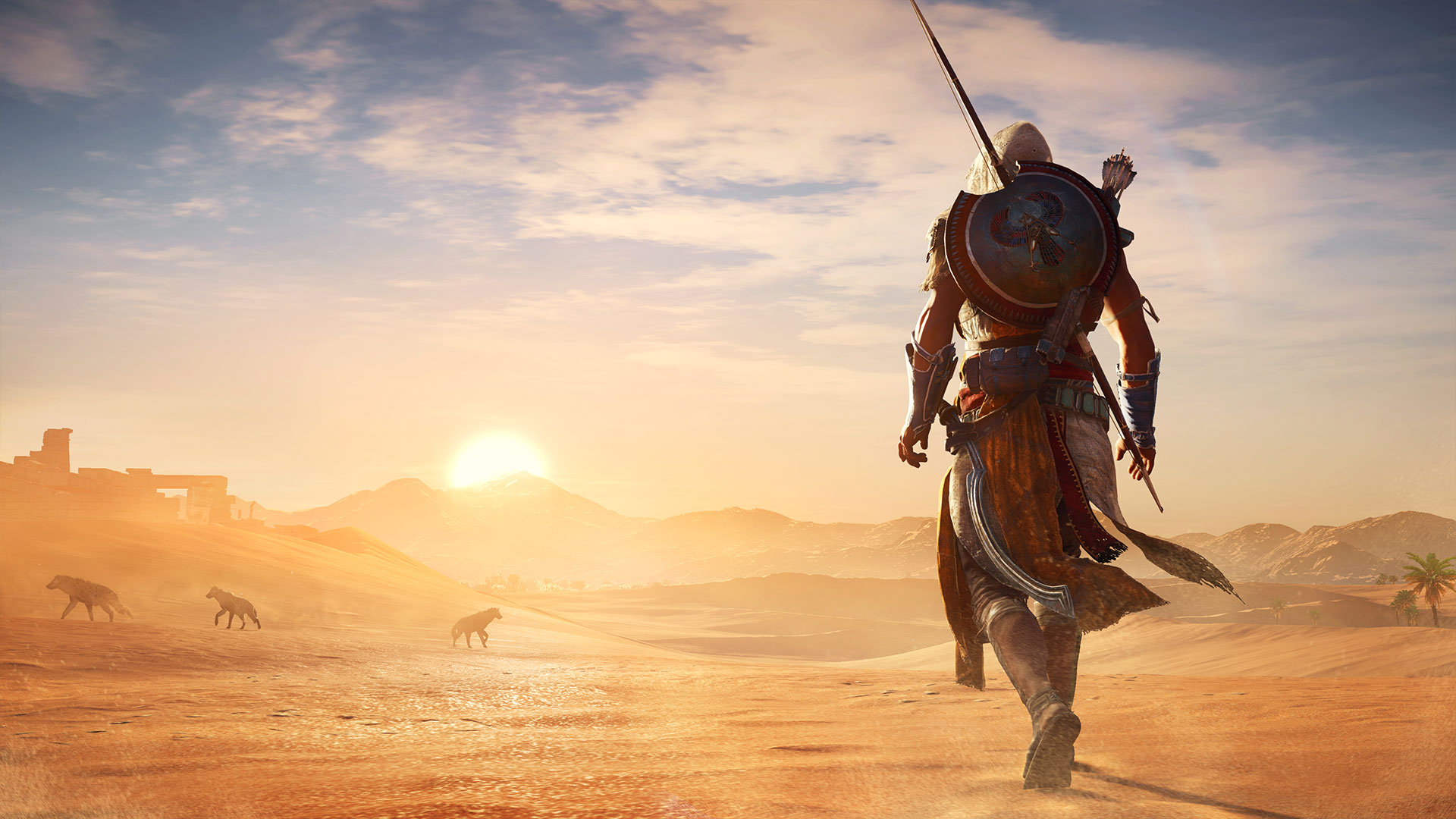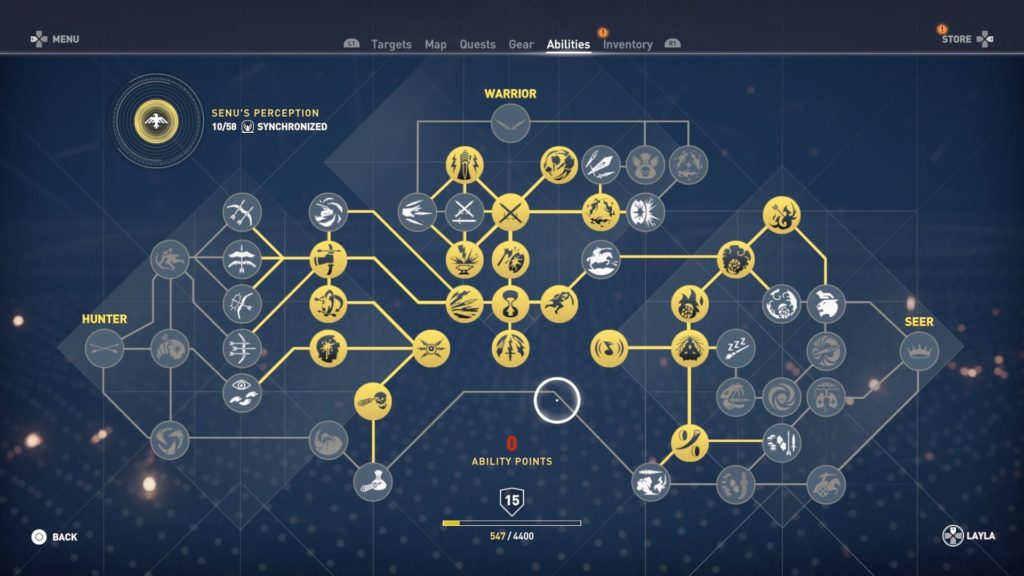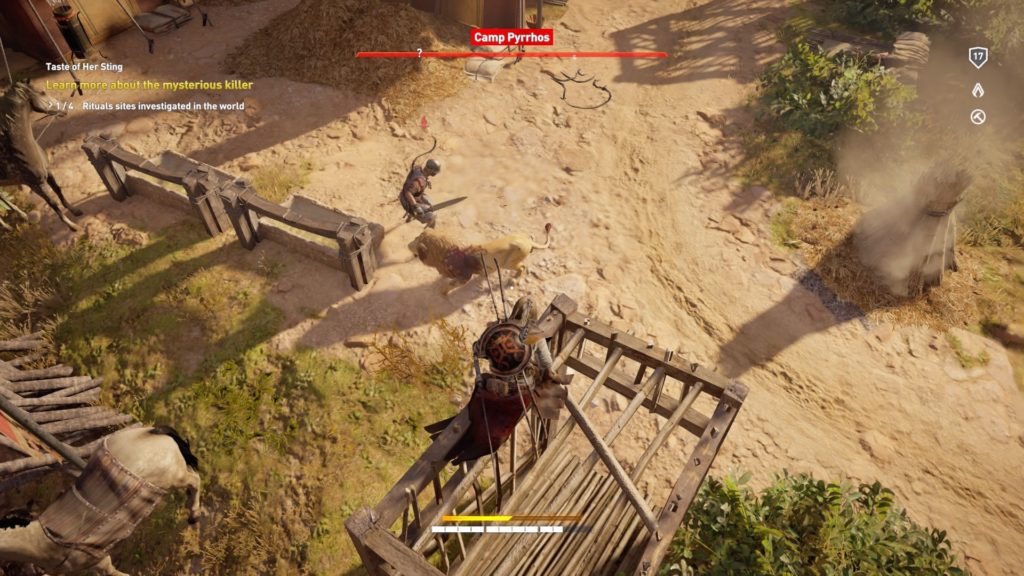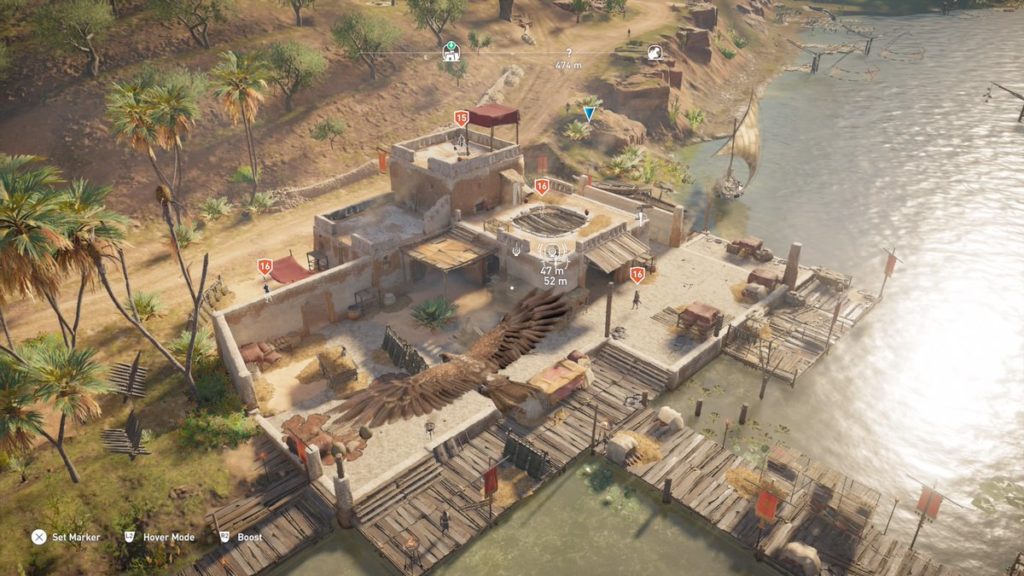
Assassin’s Creed Origins
Developer: Ubisoft
Platform: Playstation 4, Xbox One and PC
A review by Ryan M. Holt
Assassin’s Creed Origins had a lot riding on its shoulders as far as the franchise is concerned. The previous game in the series, Assassin’s Creed Syndicate, was met with lukewarm reception and a sigh of relief that it was better than the glitch-riddled Assassin’s Creed Unity. It was passable, but not great. This latest iteration is a return to form in a series that faced stagnation thanks to an annual release schedule.
Like the other Assassin’s Creed games, Origins follows a dual storyline. The bulk of the game follows Bajek, a Medjay from ancient Egypt, as he seeks revenge against the Pharaoh Ptolmey XIII for the accidental murder of his son at Bajek’s own hands. Ceaser and Cleopatra have a part to play in the game as well, setting the stage for the beginnings of the long war between the Templar and the Assassins. There are enough twists and turns throughout the plot to keep things incredibly interesting and complex, and I won’t be giving those away here.
As always, the big star of the game is the setting. Ancient Egypt is thankfully not just a giant desert that is boring to explore, but a breathing world full of caves, rivers, lakes and sprawling cities. Memphis is a particular highlight, with rivers cutting through the city and under temples. Like previous Assassin’s Creed games, climbing to the top of giant structures to get a good view is amazing, and having something as iconic as the great pyramids of Giza to do so with brings a smile to your face.

The biggest change comes to character progression, ditching arbitrary sequential upgrades in favor of an open-ended talent system. Unfortunately once you hit around level 20, progression slows as talents start costing two or three points instead of one. I understand the need to not artificially inflate a skill tree with gap skills, but maybe they should have just reduced the level cap from 40 to 30. Thankfully, within a couple hours you feel powerful and diverse enough in your skills that you have plenty of options for executing your targets, and the talents you acquire later on just make you feel like a god.
Combat has also received a huge upgrade tied into the new character progression system. While you were able to upgrade items in previous iterations, Origins has you looting and switching out gear as you play through the game. You can hotkey two types of melee weapons and two types of bows to your d-pad for optimal switching, and there is about a dozen different types of weapons to choose from. These choices are great, but the ability to upgrade weapons to match your current level does allow you to play through the game using the same four weapons if you want. While I do like my spear that steals life on hit, I would much rather have to constantly be forced to change my weaponry around than just upgrade my existing weapons to match my level.

Then there is the addition of the shield. This is the only form of defense you get and mastering it is key, especially once you reach level 30 or so. Parrying attacks with the shield is a little cumbersome compared to other 3rd person adventure games, so you will miss a parry more often than not at first. This is mostly a control issue, where parry is mapped to an odd place on the controller. Thankfully you have enough tricks up your sleeve like smoke bombs and tiered, regenerating health to help.
With most open world games, the experience of the sandbox – the unique, player driven way in which situations are approached – is where Origins outshines its predecessors. With a simple up-tap on the D-Pad, you take control of Senu your eagle companion, giving you a literal birds eye view of your surroundings. This replaces the series ‘eagle vision’ where enemies would just get highlighted red and collectibles would just get highlighted gold. Now, you have to mark things using Senu, and if you don’t see any enemy with Senu, you don’t see the enemy until it is too late and they are already calling for reinforcements. This is a great way for Ubisoft to take off the training wheels and crutches players have relied on for years, all while making the game better at the same time.

Later story beats, and certain collectibles, will be met with eye rolls, but Assassin’s Creed has always straddled that line between a serious look at history and a tongue-in-cheek style B-movie. Thankfully, it all comes together in the end, with a final mission that will have history buffs grinning.
The Verdict:
Buy It! While this isn’t the first Assassin’s Creed game for this generation of consoles, it surely feels like the first. Black Flag, Unity, and Syndicate all had at least one foot in the previous generation due to long development periods for these titles, and Origins finally feels like a fresh new take. Combat has changed for the better thanks to a generous loot system, and the addition of Senu allows for complex and fresh ways to tackle a stronghold. Hopefully Ubisoft keeps up the good work with the next Assassin’s Creed, and it doesn’t rush another one out the door in the next 18 months.
Review copy of Assassin’s Creed Origins for the Playstation 4 was provided by Ubisoft.



